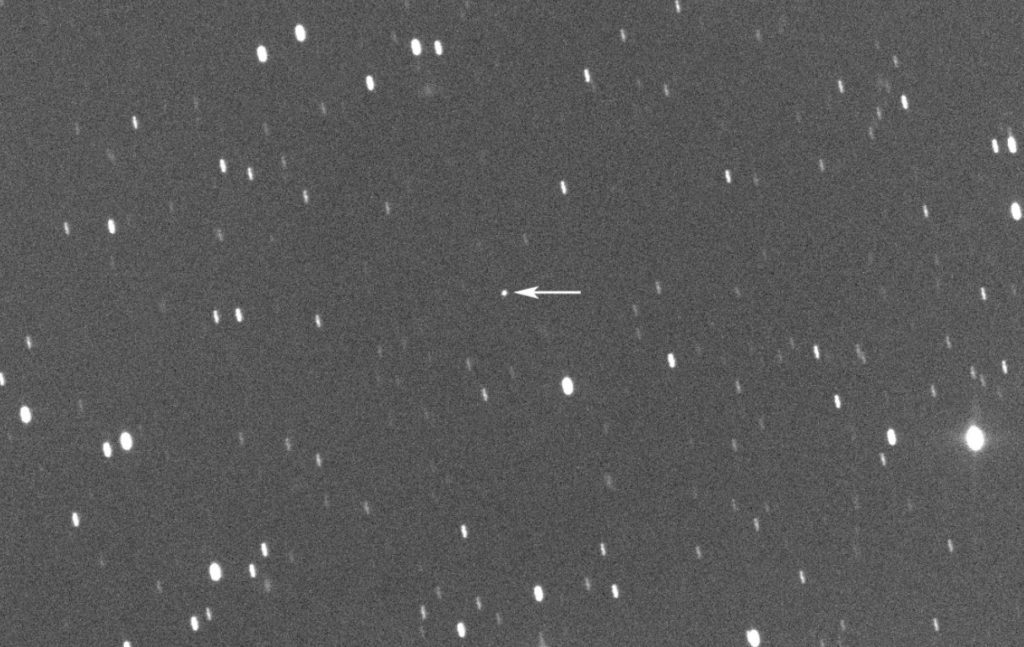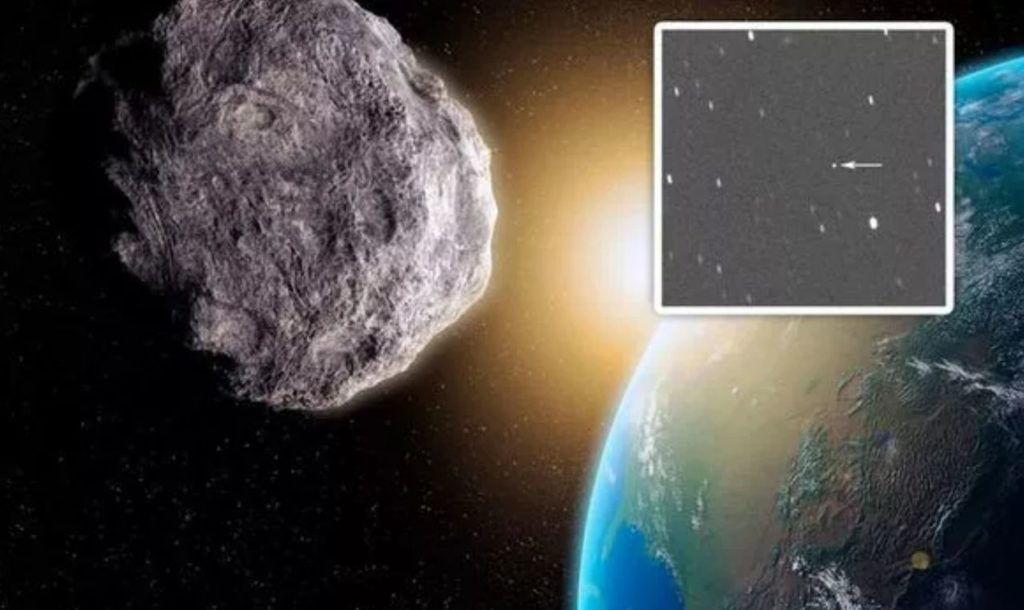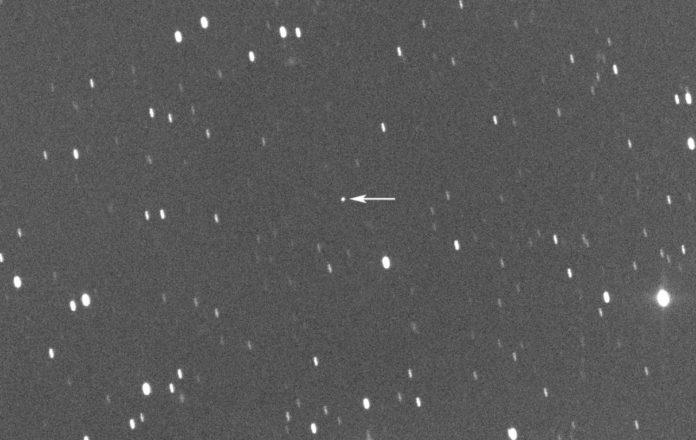The astronomers at the Virtual Telescope Project capture images of the ferocious asteroid Apophis – potentially hazardous asteroid, it is all set for a flyby of Earth.
Astronomers have successfully captured the image of the huge and the gigantic asteroid of the universe – Apophis. The 370 meters broad asteroid is named after the Egyptian God of chaos and darkness. Its official astronomical name is 99942 Apophis. Experts predict that the magnanimous asteroid could hit earth someday in the future, though the chances are negligent.
- Scientists in Fear of This New Predator From Red Sea Eating Native Species in Mediterranean
- Does This Mean We Stopped Being Animal and Started Being Human Due to ‘Copy Paste’ Errors?
- The One Lifestyle Choice That Could Reduce Your Heart Disease Risk By More Than 22%
- Aging: This Is What Happens Inside Your Body Right After Exercise
- Immune-Boosting Drink that Mimics Fasting to Reduce Fat – Scientists ‘Were Surprised’ By New Findings
The asteroid is expected to pass by earth in the coming month from a distance of 15 million kilometers making it visible for a common individual who views it with the help of a telescope. However, the gravitational effect posed by the earth can potentially affect the proximity. But the distance is believed to have no impact on the orbital path of the asteroid.
The latest image of the enormous space-rock was captured by the astronomers at the Virtual Telescope Project from a distance of more than 15 million kilometers.


According to the reports, the image was captured remotely with ‘Elena’, a robotic unit that is available at the Virtual Telescope. It took a single exposure that lasted for about 300 seconds for the image to be taken.
“The telescope tracked the apparent motion of the asteroid, this is why stars show as short trails, while the asteroid looks like a bright and sharp dot of light in the center of the image, marked by an arrow,” astronomers explained.
The astronomers predict that Apophis will fly past earth still closely in 2029. However, the most feared passage is the one that is predicted to occur in 2068. But the chances of the giant asteroid hitting the earth are minimal.
In fact, astronomers have recently cited there being one in 530,000 chances of such hit-past. Although its size is small as compared to earth, the fact that it is said to be larger than the shard in London and is as wide as three combined football fields and weighs as much 27bn kilograms, is dreadful enough.
Another major development relating to Apophis is being studied by scientists from the University of Hawaii. They have sighted a Yarkovsky acceleration on the surface of Apophis, which has the potential to influence the path of Apoptosis in its flyby of 2068.
- Scientists in Fear of This New Predator From Red Sea Eating Native Species in Mediterranean
- Does This Mean We Stopped Being Animal and Started Being Human Due to ‘Copy Paste’ Errors?
- The One Lifestyle Choice That Could Reduce Your Heart Disease Risk By More Than 22%
- Aging: This Is What Happens Inside Your Body Right After Exercise
- Immune-Boosting Drink that Mimics Fasting to Reduce Fat – Scientists ‘Were Surprised’ By New Findings
When a Celestial body changes its orbital course as a result of a slight force of heat (acceleration), it is called Yarkovsky acceleration. Now, the heat that causes acceleration could be from the asteroid itself, gases, gravitational push, or a jolt from celestial bodies including the Sun and Earth.
The asteroid and its path, however, can be studied and observed in minute detail when it passes closely by the Earth in the next event in 2029.
When estimating the impact of the earth being hit by Apophis in the future, the scientists stated that its impact would be 65,000 times as destructive as the nuclear bomb blasts of Hiroshima. Also, it would form a crater that is broader than one mile and has a depth of 518 meters.
